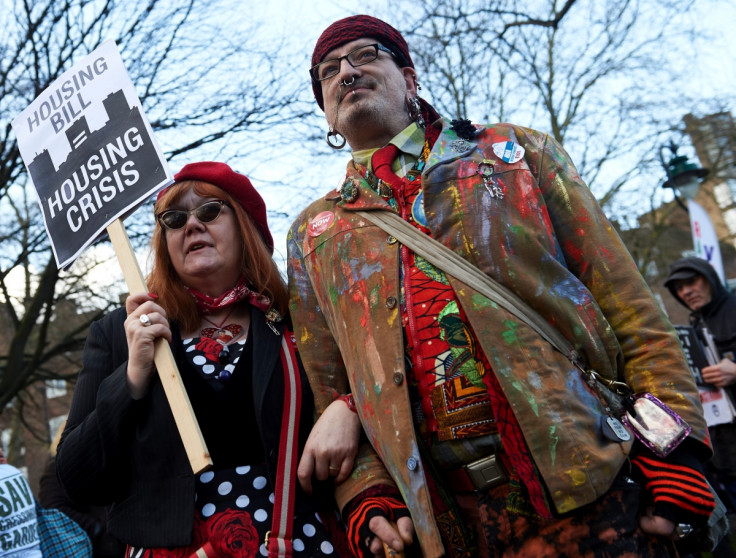Housing Bill: From pay to stay to right to rent — the controversial legislation explained

The Housing and Planning Bill is approaching its final stage in parliament before – if all goes to the government's plan – passing into law. But the wide-ranging legislation, touted as the most significant reform to the housing system for a generation, is hugely controversial. On 13 March, 2016, opponents of the bill will come together in London for a mass demonstration, led by Labour leader Jeremy Corbyn. The government says its bill is a necessary shake-up of housing, which will cut spending and boost house-building and home ownership. Here is a rundown of the most controversial elements of the Housing Bill.
Pay to stay
The so-called "pay to stay" reform will increase the rent for higher earners living in council housing, so more people pay closer to the market rate. Council housing is subsidised so rents charged are below market prices. The Housing Bill gives central government the power to set the levels of rent local authorities must charge what it calls "high income social tenants". The original plans of charging households with an income over £30,000 outside of London and £40,000 inside the full market rate have been watered down. It will now be a sliding scale starting at £30,000 with rent increases up to £50,000, at which point the market rate will be charged. Critics say this will drive people out of their homes and make them worse off, but the government argues it is unfair for higher earners to have their rents subsidised by everyone else.
Right to rent
Landlords will be forced to check the immigration status of their tenants and report those without the right documents. This is to make it harder for illegal immigrants to get by undetected in society, and for rogue landlords to exploit them. Landlords caught flouting the right to rent rules will face punitive fines. Critics argue this will mean legitimate migrants could find it harder to secure tenancies, as risk-averse landlords will avoid letting to them. But the government said a successful pilot of right to rent shows these concerns are overblown.
Starter homes
The government wants to increase home ownership. But a shortage of housing is driving up prices in some parts of the country – particularly London and the south east of England – making it harder for first-time buyers to get onto the ladder. One of the government's policies is to fund the construction of discounted "starter homes" for first-time buyers under-40. The Housing Bill will allow developers to count starter homes as affordable (to secure planning permission, firms must commit to building affordable housing or paying a fee to waive the obligation). The bill will also oblige local authorities to get starter homes built in their areas. But there are concerns the policy will lead to fewer much-needed affordable homes for rent being built as starter homes crowd others out.
Ending lifetime tenancies
One of the bill's provisions will abolish lifetime tenancies in council houses. It will only apply to new tenancies. Those who need a council house in the future will be offered tenancy contracts of between two and five years. At the end of the tenancy, it will be reviewed by council officials. If they conclude that you no longer need council housing, and could buy a property or rent in the private market, they will end your tenancy and support you to move on. They may also renew the tenancy, or move the person to different social housing that is deemed to be appropriate. Critics say this will cause instability for council tenants and break up communities. But the government argues that such housing provision should be for those who need it, and so should not be guaranteed for life because circumstances can change, meaning people can move on and free up an affordable home for someone else.
Right to buy and housing associations
The government originally planned to fully extend the right to buy — where council tenants can purchase their homes at a discount from the local authority — to housing associations. But housing associations said the government was interfering in their finances by forcing them them to sell off their assets, and risked making them financially unsustainable. Fewer affordable homes, they argued, would be built and some associations would end up closing. After negotiations, the government has made housing associations' participation in right to buy voluntary.
Selling valuable council houses
To fund parts of the Housing Bill, in particular the right to buy extension to housing associations, the government will force local authorities to sell off their most valuable vacant homes. This, the government says, will make the best use of public resources. But its opponents say it will see fewer affordable houses for rent in the places they are most needed — expensive areas to live. And they say local councils should be allowed to make their own decisions on what they do with their assets.
Read more about UK housing issues
© Copyright IBTimes 2025. All rights reserved.






















